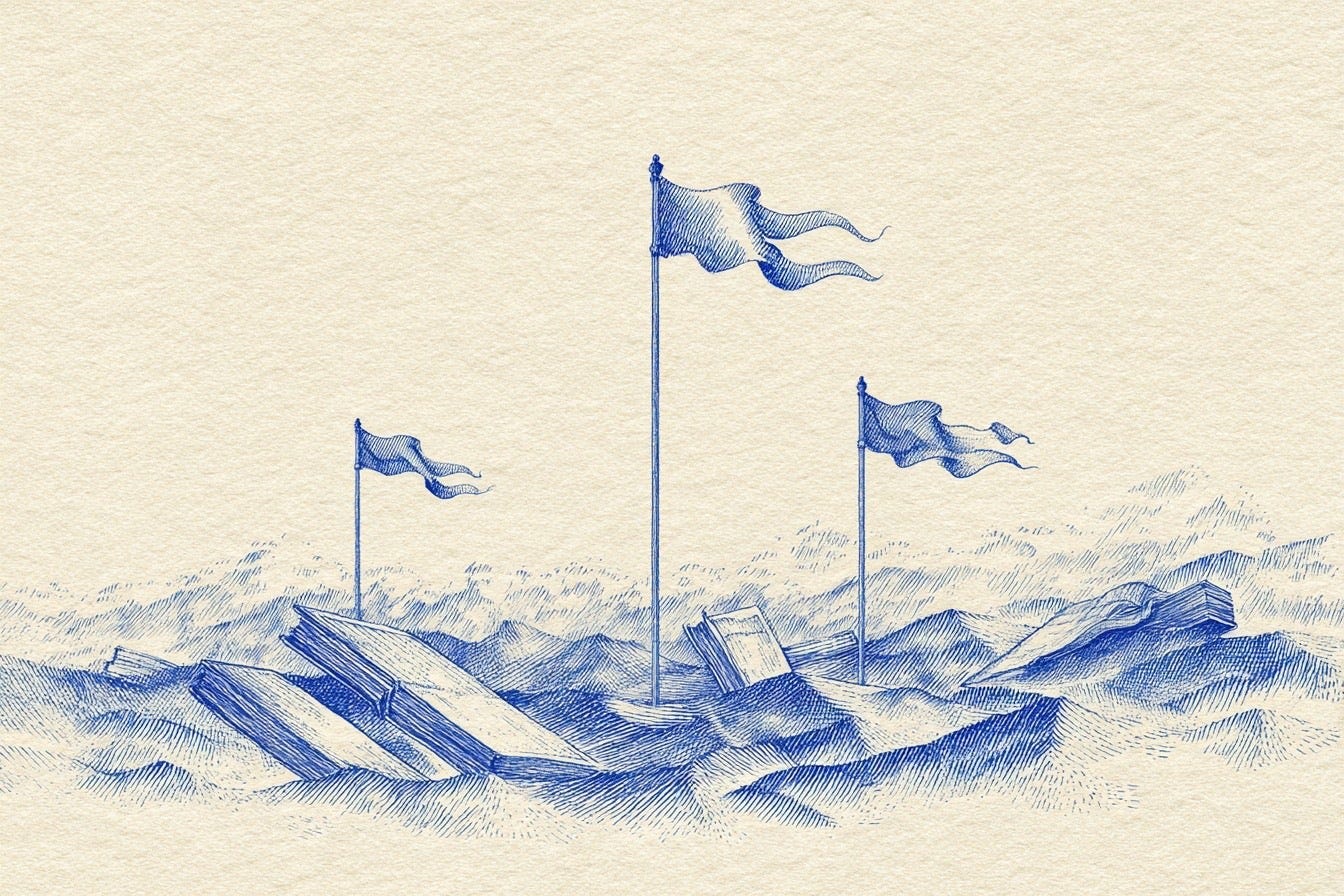Introduction to A Philosophical War: Redux
If there’s a central premise to A Philosophical War, it is that our greatest adversary is not an external force or familiar foe, but the very shape of our own consciousness. This book is my attempt to bring that “enemy” into view — not for the sake of endless critique, but so we might, at last, confront and transcend it. I have set out, perhaps quixotically, to identify what has gone awry and to propose how we might reclaim something more coherent, more authentic, and more harmonized than what currently passes for the human condition and the consciousness we employ that underwrites and supports it.
The project of A Philosophical War - while largely performative - is nevertheless urgent. If much of modern thought seems defensive - resigned to managing the collateral damage of day-to-day living - my approach is quite the opposite; I attempt to take the fight to the root with a series of epistemological guerrilla strikes directed at the everyday patterns embedded deep within our thinking.
While the work is linear in one sense, the book is designed to be accessible from any given entry point. Furthermore, you needn’t be a scholar in order to engage. The enemy I take aim at isn’t exclusive or esoteric. Rather, it is the invisible architecture that we all too often mistake for reality itself — the particular ways our minds have come to operate, limiting our access to the real and endlessly dividing us from one another, and from the greater whole.
At root, my claim is that, due to a certain kind of phenomenological misinterpretation, humanity is only ever granted fragmented glimpses of reality. We are separated from a true encounter with the world largely because we have over-committed ourselves to thought alone — as if thinking, in abstraction, could stand in for full participation with what actually is. The result has been a rising tide of artificial distance and divisiveness, not just among people, but within our own selves.
My answer - though still in formation, and intended as an invitation more than a decree - is to reconsider what should be at the center of consciousness. Thought, as it stands, should not be its guiding principle. I propose a different mode, which I call “being with”. This approach is less dependent on inherited concepts and more anchored in genuine relationality: not just to others, but to reality in its unapportioned fullness. If doing so decouples us from the overreliance on abstracted ideas, it simultaneously reconnects us with the rest of creation in a way that old structures have hardly dared to imagine.
Perhaps the most radical maneuver within the book is a reevaluation of our earliest stories. The early chapters of Genesis, for example, are not treated with the kind of deference or dogmatism that secures the past at the expense of the present. Instead, I try to extract what has been missed: not a myth to ossify, but a living metaphor for what it means to be separated from our original form of experience — precisely because of conceptualization. The “fall” is less about a single human error and more about a transition from direct being to a life mediated by abstraction.
Alongside this, I do not shy away from the deep questions about God. In fact, I argue that the prevalent notion of God, so embedded in old language and conceptual habit, deserves to be set aside. Yet, in doing so, I aim not for cynicism, but for the possibility of delivering a sounder argument for the real. For what is God if not that which is always just beyond the grasp of inherited language or ready-made belief? The only path forward, I suggest, is one that allows for authentic encounter rather than endless repetition — a relationship with the real that is always ongoing and never finished.
If there is a thread that runs throughout, it is a certain kind of hope: one that is mystical, yes, but equally realistic. A Philosophical War is my attempt to open a space for that hope in a philosophical landscape that too often defaults to despair or routine. There is far more to say, and I intend, in time, to explore individual concepts and chapters in greater depth. For now, though, my aim is to offer this broad overview and to invite readers to question with me: If the very structure of consciousness is adversarial - if we have grown restless and fragmented by it - is it not time we consider a new alliance? If there is another way of being with, available here and now, perhaps the greatest act is simply to begin.



